Tutor Training
TASC Home
TASC Hours and Contact Info
Writing Center
Math Computer Lab
Online Tutoring
Language Arts Lab
Tutor Training
Tutoring Scenarios and Potential Problems
Regardless of preparation, there may still be occasional problems. On this page, we have listed some common problems and given you suggestions for handling them.
Tutee Statement
“My assignment is due tomorrow. Will you help me?”
Tutor Response
“Let’s take a look at the type of problem you have. We’ll work on something similar, so that you’ll be able to do the assignment.”
Remember: It is not your job to do students’ homework assignments. If you do, the students will not learn how to do the work on their own. Waiting until the last minute to do assignments may also be a sign of poor time management skills. Model time management behavior in your sessions.
Tutee Statement
“I’ve already done my homework. I just need you to check it for me.”
Tutor Response
“Well, you know, we don’t proofread assignments, but I’ll tell you what I can do. If you’ll show me the areas you’re worried about, we’ll discuss those problems in general and take a look at your book. Then, you can check your homework.”
Remember: It is not your job to make sure that everything a tutee turns in is perfect. Helping students with specific homework problems is not what you were hired to do. Review similar homework problems and help the student develop the critical thinking skills necessary to do his/her homework assignment independently. Tutees must learn how to check their own work and how to have confidence in the answers they give. If they can do this, they will:
- Be able to defend their answers.
- Understand more completely.
- Develop better self-esteem.
- Become more independent.
Tutee Statement
“I’ve written this paper that I have to give in Spanish to my class. Will you help me?”
(Translation: “I did get it written in English, but I can’t write it in Spanish. Will you do the translation for me?”)
Tutor Response
“You’ve gotten off to a good start. You have the paper written. Do as much of the translation as you can. I can’t help you with that. However, once you’ve done as much as you can, right or wrong, we’ll see what type of problems you’re having. We’ll work on those areas. Then, you can go back and finish your paper.”
Remember: It is not your job to do students’ assignments. You cannot be with the student forever. They need to learn how to do work on their own.
Tutee Statement
“I have class (or work) during the times you’re tutoring. Can’t you meet with me some other time?”
Tutor Response
“I’m sorry. We’re only budgeted for a certain amount of time and money.”
Remember: Nothing is ever perfect. Our hours are based on availability of tutors and money. We cannot be all things to all people. This is not your fault.
Tutee Statement
“Come on. I’m your friend. Help me out here. I need you. I can’t come during your scheduled times. Can’t you make an exception for me?”
Tutor Response
“I know how tough it is. With my classes and work, I rarely have any spare time either.” “Have you considered forming a study group with others in your class?” “Have you checked to see what your instructor’s office hours are?” “We also have other TASC tutors. Have you checked to see if any of their hours coincide with your free time?” “Have you considered hiring a tutor?”
Remember: It is really hard to say no – especially to someone who considers you a friend. Although it is difficult, saying no will help the tutee take responsibility for his/her own learning. You should not be the sole resource for your tutee.
Tutee Statement
“This instructor is really crazy. She won’t even listen to reason. I think she’s out to get me.”
Tutor Response
“Sounds like you’re having a bad time. I’m sorry you’re finding it difficult to succeed in this class. Perhaps you could show me some of the problems you are having difficulty understanding. I may be able to help clarify them for you. We may also need to review how you are studying for this class. You may have to invest more study time so that lectures are more meaningful and less stressful.”
Remember: Regardless of how an instructor is performing, it will not help the student by complaining with them. The student will still have to find a way to understand the material and pass the course. The more you help them find ways to learn effectively, the less dependent they will be on learning ALL the material through lectures and class time.
Never, ever, “bad-mouth” instructors or agree with students who are doing so; students will sometimes use this as an excuse for doing poorly and it can spread to other students like a disease. Also, remember that anything you say about the instructor will get back to that instructor, which will reflect negatively on you and on TASC. Always behave in a professional manner.
Tutee Statement
“Nothing works. I just can’t get it. I study all the time. I don’t know what to do.”
Tutor Response
“If you want, you can take a quick test to determine your learning style. It’s fun, and it doesn’t take very long. Once you know whether you learn better by seeing, or by doing, or by hearing, we’ll both be able to figure out study strategies to help you. Then, we’ll take a look at your book.”
Remember: Sometimes the students really are studying, but in a non-beneficial manner. TASC has resources to help with study skills. You may also want to refer the student a staff member.
Tutee Statement
“I can’t take it anymore. I’m dropping out.”
Tutor Response
“I’m sorry to hear that. Before you make any decisions, why don’t you talk to one of the counselors in the Counseling Office? They may be able to help you find another alternative.”
Remember, the student may be having family problems, emotional problems, or something other than academic problems that are contributing to his/her feelings of hopelessness. If so, this situation is beyond your job scope. Please make a referral to someone with more training.
 TRCC EXTRANET
TRCC EXTRANET




